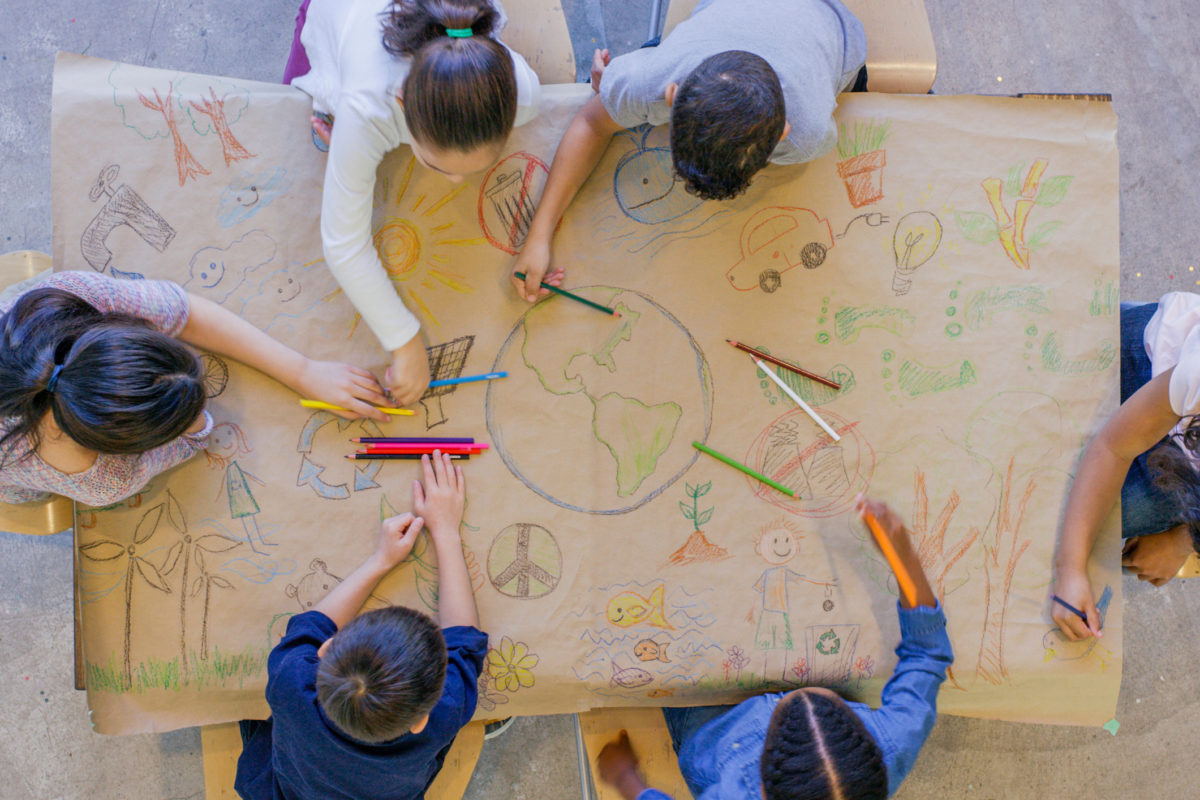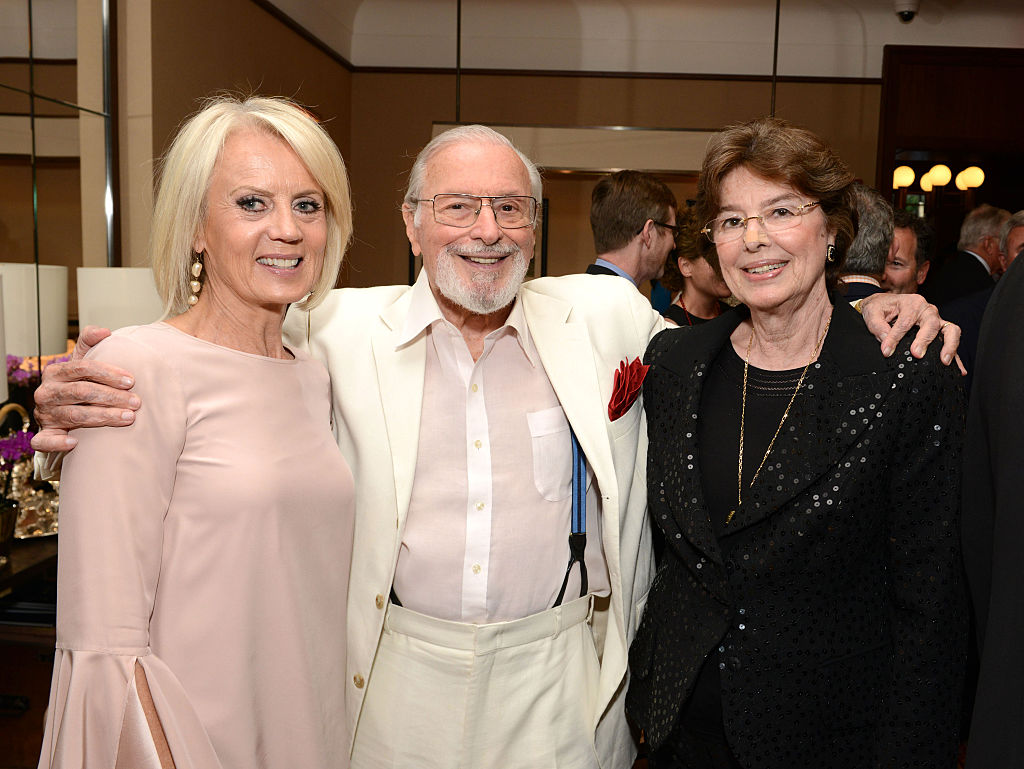Your Daily Phil: Jewish orgs multitask crises + Mental health app for Jewish teens
Good Thursday morning!
Remember the leaked Supreme Court draft opinion that would overturn Roe v. Wade? That was published a little more than three weeks ago. Eleven days later, a gunman spouting racist and antisemitic conspiracy theories entered a Buffalo supermarket and killed 10 people. Just 10 days after that, the shooter in Uvalde, Texas, murdered 19 children and two adults. In between, the country has coped with other crises, from rising COVID-19 numbers to a shortage of baby formula.
What does that mean for Jewish nonprofits, and their funders, that want to stay engaged with the news and public discourse? Leaders in the field say it requires a balancing act: being agile enough to pivot quickly to different issues, while also recognizing where you can and can’t add value. “You want to be able to change, you want to respond to crises, but you don’t want to be derailed every time,” Andrés Spokoiny, CEO of the Jewish Funders Network, told eJewishPhilanthropy.
“I do think it’s normal for people to be overwhelmed,” Sheila Katz, CEO of the National Council of Jewish Women, told eJP, adding that people should “make the space to feel those things and then… take action.” Katz’s organization led a Jewish rally for reproductive rights at the U.S. Capitol last week; like many activist groups, most of its tweets over the past day have been about the Uvalde shooting.
“In these moments we have to move forward and I do agree it would be easier if we could be single-issue, and unfortunately there’s too many things targeted at us right now,” she said. “I think these issues are all more connected than sometimes we want to see.”
Rabbi Moshe Hauer, executive vice president of the Orthodox Union, said he isn’t fazed by having to respond to multiple crises because that’s part of his job. But his organization handles the challenge by separating its day-to-day operations and crisis response into two mostly separate divisions.
“We make sure that progress is being made on [multiple] fronts,” he told eJP. “We don’t suck the whole organization into the crisis… We don’t view it as a distraction, we view it as a fundamental task.”
While the news cycle sped up considerably with the advent of the internet and social media, Spokoiny said that other eras — like the years surrounding the fall of the Berlin Wall and the collapse of the Soviet Union — felt similarly frenetic. But he added, “In the past you’d have an unexpected jolt every five years. Now you have one every six months, or every month, even.”
“I’m just wary of the good-old-days syndrome,” Hauer said when asked whether today’s news feels more chaotic than [in] previous eras’. “It’s very intense, and a lot of stuff has happened in the last couple of years… Whether it’s more or less, it’s a whole lot.”
CRISIS RESPONSE
At this mental health call center, teenagers are on both ends of the line

CODY RAPPAPORT
When the pandemic began, Carly P., a teenager from Westchester County, N.Y., got what she described as “a wake-up call”: One of her friends had become depressed and was contemplating suicide. After the incident, Carly realized she wanted to help those who might not have access to mental health resources and found Teen Talk, an app created by the Jewish Big Brothers and Big Sisters of Los Angeles (JBBBSLA) and staffed by teen advisors who provide anonymous, mobile, free support to their peers, reports eJewishPhilanthropy’s Esther D. Kustanowitz.
Empathy and validation: Teen Talk’s model of teens giving advice to their peers creates a comfortable atmosphere for young people who turn to the app, James Finney Conlon, JBBBSLA’s director of communications and outreach, told eJP. The teen advisors “respond to these posts in really meaningful and empathetic ways and make the other teens feel listened to, validated and like they’re not alone,” Conlon said.
Mental health challenges: According to the World Health Organization, one in seven 10- to 19-year-olds experiences a mental disorder. Depression, anxiety and behavioral disorders are among the leading causes of illness and disability among adolescents globally. Suicide is the fourth leading cause of death among 15- to 19-year-olds.
Well-trained peer support: Currently, about 3,000 users ages 13 to 19 from 100 countries seek help on the Teen Talk platform monthly, asking for support and guidance on topics like eating disorders, gender identity issues and depression. Users, who are not identified by name or photo, also use the app to help cope with stress factors like academic and parental pressure and relationship challenges. After having trained for more than 50 hours, the app’s 140 teen advisors are identified on the platform by a number (“Advisor 24”) to use as they offer support, assistance and resources, often using a pseudonym (“Hi, I’m Chloe…”) to make the app feel warmer and more human.
SUPPORTING EDUCATION
Social and emotional learning is at the heart of Jewish education

FatCamera
“We’ve worked with enough Jewish educators to be confident that the work we do is relevant. But controversial? That was, quite literally, news to us,” write Nancy Parkes, an educational consultant, and Jeffrey Kress, provost at Jewish Theological Seminary, in an opinion piece for eJewishPhilanthropy.
Mussar as a tool: “Upon reading of concerns about social and emotional learning in math textbooks in Florida, a wonderfully creative math teacher came to mind. At the time, her day school was implementing a school-wide mussar(character development) program. This teacher, noticing anxiety among many of the students around math (and, to some extent, academics in general), used ideas and concepts from the mussar program for stress-management and to focus student attention. Both this experienced teacher and her students (who completed evaluations of the experience) understood that these few moments ‘away’ from math actually supported the learning goals of the class.”
Educational approach: “This is social-emotional learning (SEL) in action! SEL is an approach to education in which the promotion of social and emotional growth occurs intentionally and planfully. SEL and academics are a both/and, not an either/or.”
Worthy Reads
Philanthropy and Gun Reform: Writing in The Chronicle of Philanthropy, Drew Lindsay interviews Igor Volsky, the founder of Guns Down America — a funder collaborative that includes several foundations — about holding President Joe Biden accountable for action in fighting gun violence and philanthropy’s role in the issue moving forward: “The funding base is far more diverse. There’s greater interest, even though that interest is small relative to other issues. In understanding and supporting the work, there’s a much greater understanding of what the gun-violence problem looks like. And as a result, there’s a far deeper investment in communities and community-violence prevention. Frankly, Parkland and the energy that came out of it unlocked a lot of those doors.” [ChronicleofPhilanthropy]
Community Comms
Fellowship funding available. Apply now for Spertus Institute’s accelerated Master’s program for communal executives. Complete your degree in 18 months.
Be featured: Email us to inform the eJP readership of your upcoming event, job opening, or other communication.
Word on the Street
Rabba Yaffa Epstein will join The Jewish Education Project as the agency’s first-ever senior scholar and educator-in-residence. Epstein is concluding her role as director of the Wexner Heritage Program in July…
Rabbi Seth Goren has been appointed the next CEO of Hillel Ontario…
Rabbi Daniel Brenner was promoted to vice president of education at Moving Traditions. He was formerly the organization’s rabbi and chief of education and program…
Tamar Appel will join Hidden Spark, which aids children with learning differences, as director of education, effective July 6. Appel currently serves as associate principal at Ma’ayanot Yeshiva High School for Girls in Teaneck, N.J….
Darren Walker, president of the Ford Foundation, was named commander of France’s Order of Arts and Letters, France’s highest cultural honor…
Philanthropic giving by U.S. private and community foundations, companies and high-net-worth individuals in support of COVID-19 response and relief efforts totaled $1 billion in 2021, according to a report from Candid and the Center for Disaster Philanthropy….
The Lappin Foundation is one of 140 nonprofits to receive grants of $100,000 to $500,000 through Cummings Foundation’s $25 million grant program. The organization will receive $100,000 over five years for its Holocaust Symposium for Teens…
Intrivo, a U.S.-based health technology company, announced a recent donation of more than $1 million worth of On/Go COVID-19 tests to hospitals across Ukraine. Intrivo’s partner in Ukraine, the American Jewish Joint Distribution Committee, is also a recipient of On/Go tests it will use with internally displaced people in refugee centers in Ukraine…
The sale of Chelsea FC by Roman Abramovich was approved by both the U.K. and Portuguese governments following the proposed takeover by the Todd Boehly/Clearlake Consortium. Portugal’s approval was necessary as Abramovich, the billionaire sanctioned for his ties to Vladimir Putin, holds Portuguese citizenship…
Pic of the Day

Courtesy of The Jewish Education Project
The Jewish Education Project’s spring event on Tuesday night in Manhattan celebrated the agency’s successes and honored its board president, Martine Fleishman, and five young educators. During a musical performance by David Broza, attendees locked arms and sang along.
Birthdays

Noam Galai/Getty Images for GIFF
Political cartoonist and journalist, Ranan Lurie, turns 90…
Public speaker, teacher and author, he writes the weekly column “Looking at Language,” Richard Lederer… Journalist and educator, the mother of Susan (CEO of YouTube), Janet (a Fulbright-winning anthropologist) and Anne (co-founder of 23andMe), Esther Hochman Wojcicki… Member of the U.S. House of Representatives since 1999, Janice Danoff “Jan” Schakowsky (D-IL-9)… Lake City, Fla., resident, John W. Davis… Longtime media exec, Michael Oreskes… Co-founder and CEO of Mobileye, he became an SVP of Intel after Intel acquired Mobileye in 2017, Amnon Shashua… NYC real estate developer, board member of The Charles H. Revson Foundation and a former commissioner on the NYC planning commission, Cheryl Cohen Effron… Former brigadier general in the IDF, she has been a member of the Knesset for the Likud party since 2009, Miriam “Miri” Regev… Counsel in the government affairs practice in the DC office of Paul Hastings, Dina Ellis Rochkind… Photographer, her work has appeared in galleries and been published in books, Naomi Harris… South Florida entrepreneur, Sholom Zeines… Program officer for media and communications at the Maimonides Fund, Rebecca Friedman… Former minor league baseball player, he has become one of the leading agents for NBA players, Jason Glushon… Tel Aviv-based freelance journalist, Yardena Schwartz… Special counsel at the American Center for Law and Justice, Mark Goldfeder… Deputy Washington director of Bend the Arc Jewish Action, Arielle Gingold… Special counsel in the Washington office of Covington & Burling, Benjamin L. Cavataro… Toronto-born Israeli actress and singer, best known as the protagonist of the television series “Split,” Melissa Amit Farkash… External relations officer at the American Academy of Arts and Sciences, Morgan A. Jacobs… Catcher for the Philadelphia Phillies, Garrett Patrick Stubbs… Eytan Merkin…
Email Editor@eJewishPhilanthropy.com to have your birthday included.








